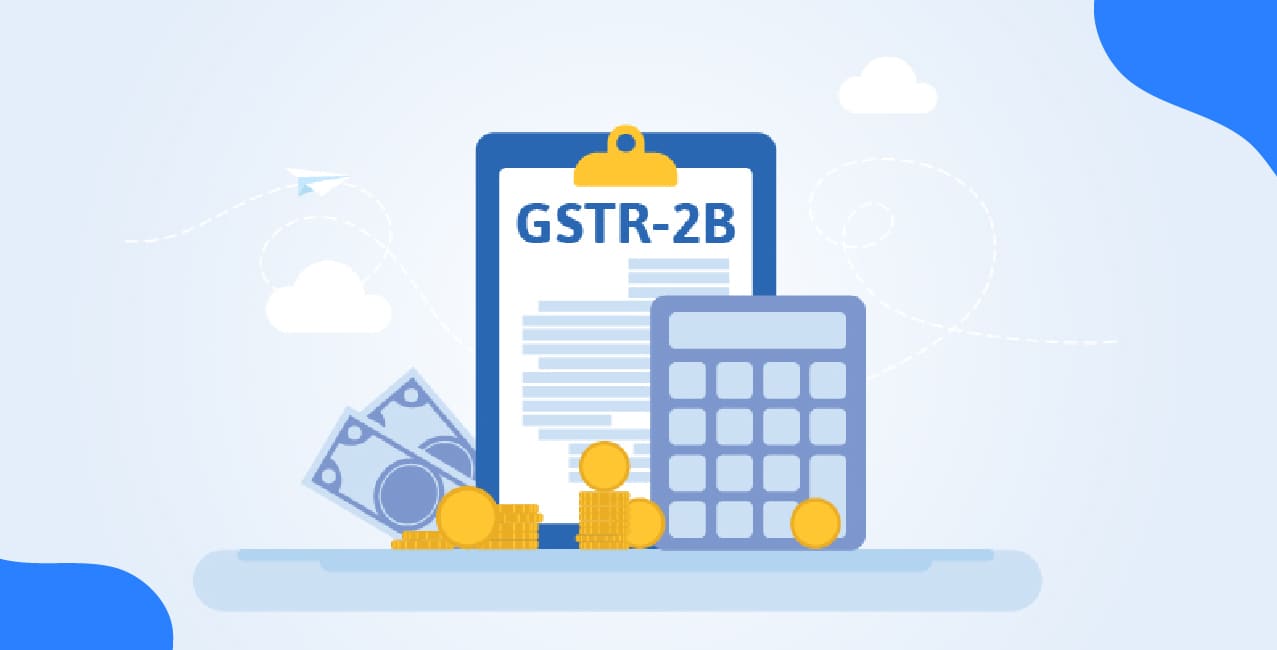GST on Crypto – Updated Guide to Taxation in India

Check Your Loan Eligibility Now
By continuing, you agree to LoansJagat's Credit Report Terms of Use, Terms and Conditions, Privacy Policy, and authorize contact via Call, SMS, Email, or WhatsApp
Key Takeaways:
- You pay 18% tax when exchanges charge you fees.
- Every crypto exchange must sign up to collect taxes.
- Save all your trade papers for government checks.
GST on crypto has changed how digital money works in India. New rules make tax simple for traders. The 22nd September 2025 changes made GST easier. The system now has three main tax rates. GST on crypto stays at an 18% tax rate. This makes clear tax rules for digital money.
Many people buy and sell Bitcoin and other cryptocurrencies. They need to understand tax rules properly now. Wrong tax filing can create big problems later. The government wants to collect tax on crypto deals. Traders must follow all the new tax laws. Understanding GST helps save money and avoid trouble.
Example: When you trade Bitcoin worth ₹1,00,000 on CoinDCX, the exchange charges a 0.5% trading fee (₹500). You pay 18% GST on the crypto service fee, which equals ₹90. Your total cost becomes ₹1,00,590 instead of ₹1,00,500.
Understanding GST on crypto helps save money and avoid legal trouble. This blog explains everything about crypto taxes comprehensively. We will cover HSN codes, tax rates, practical examples, and compliance requirements for Indian traders.
This blog explains everything about crypto taxes. This will cover HSN codes, tax rates, and examples.
HSN Code Classification and Digital Assets
No special HSN code exists for crypto transactions. Digital assets currently use HSN code 960899, named "other miscellaneous article" with an 18% tax rate. Under the GST law, authorities categorise VDAs as "goods" rather than services, despite being intangible digital assets.
Under Income Tax, India treats crypto as Virtual Digital Assets (VDA) - a separate classification that the Finance Act 2022 introduced. However, for GST purposes, virtual digital assets cannot qualify as money or securities, so the GST framework regards them as "goods".
People report crypto sales under HSN 960899. The code covers NFTs and digital assets. Wide grouping makes sure all taxes are covered. The GST law says goods are movable things. Crypto does not count as real money. It cannot be called proper securities either. So, crypto becomes a taxable good by law. All crypto transfers need tax payment.
Read More – Pay With Crypto Currency from Google Pay and Apple Pay
How GST on Crypto Affects Transactions with Examples
The 18% tax rate affects all crypto users. Single traders pay extra costs beyond income tax. Normal 30% income tax applies to profits. TDS of 1% also stays the same. These many tax layers make transactions cost more.
Example 1: Exchange Trading Case A trader buys Bitcoin worth ₹1,00,000. The exchange takes a 0.5% trading fee (₹500). Current GST on crypto rules apply to services. The trader pays this total cost:
- Trading fee: ₹500
- Tax on trading fee: ₹90
- Total transaction cost: ₹1,00,590
Example 2: Moving Money Between Wallets Moving crypto between personal wallets has no tax. Third-party services charging ₹200 create tax duty. The cost becomes:
- Transfer fee: ₹200
- Tax on transfer fee: ₹36
- Total transfer cost: ₹236
Example 3: Mining Work Mining work sells self-made crypto worth ₹5,00,000. GST on crypto collection becomes must on sales:
- Sale value: ₹5,00,000
- Tax to collect: ₹90,000
- Money received: ₹5,00,000
These examples show that tax applies to all. Exchange deals face must taxation. Direct mining sales need tax collection.
Registration Rules and Following Laws
Crypto businesses need registration of above ₹40,00,000 income. Changed tax rules keep this limit the same. Crypto exchanges face special following-law rules. They must register, no matter their income.
Mandatory Registration Requirements:
- Turnover Threshold: ₹40,00,000 annual income triggers GST registration under Section 22 of the CGST Act
- Zero Threshold Rule: All crypto exchanges must register regardless of turnover under OIDAR provisions
- Foreign Platforms: International exchanges serving Indian users need mandatory registration under Section 14 of the IGST Act
- Timeline Compliance: Registration within 30 days of crossing the threshold or starting operations
Indian users get OIDAR services from exchanges. This grouping creates must registration needs. Local and foreign platforms follow the same rules. Rule differences become impossible under the current system. Full digital money coverage stays complete.
Input Tax Credit Help for Crypto Businesses
The tax system offers ITC help for real businesses. Companies can claim credits on crypto purchases. Other business costs also qualify for ITC. This stops double tax effects on businesses.
Main ITC allowed costs include many types. Crypto buying for business qualifies for credits. Professional advice fees become claimable under the system. Software licence costs qualify for credit help. Mining setup costs get ITC help too. Marketing costs for exchanges qualify as well.
Example: CoinDCX pays ₹1,18,000 (including 18% GST) for cloud storage services. They claim ₹18,000 ITC against their GST liability. Similarly, WazirX purchases mining equipment worth ₹5,90,000 and claims ₹90,000 ITC on hardware costs.
Businesses avoid double tax through the ITC ways. Following the law, duties must stay through business work. Proper papers make sure credit availability works.
Learn More - RBI Is Not In Favour Of Cryptocurrencies
Following-Law Duties for Crypto Platforms
Exchanges face strict following-law needs under taxation. The right collection of service fees remains a must. Detailed deal records need to be kept for checks. Quick tax payment becomes important for the following laws.
Platforms need strong accounting systems for work. All taxable deals need proper capture. Service charges are subject to tax duty under the law. Crypto transfer values stay free from taxation. This difference proves important for the right calculations.
Following the law requires accuracy from all platforms. Check purposes demand detailed records from exchanges. The government expects quick payments from businesses.
Future Rule Thoughts and Market Effects
September 2025 changes made India's tax system simple. Most goods and services face less burden. GST on crypto taxation stays quite complex still. Special features create ongoing rule challenges.
Market people expect rule clarifications for deals. Special HSN codes might come for assets. Better grouping systems could develop over time. These changes would give greater business certainty.
The current 18% rate matches with standard taxation. The changed system maintains consistency across all areas. Crypto's growing status gets government recognition. India's digital economy keeps expanding fast.
People must stay alert about rule changes. Following the law needs constant attention from businesses. Policy changes need continuous watching by traders.
Is GST on Crypto Double Taxation in India?
India does create double taxation on crypto traders through multiple tax layers. You pay 30% income tax on crypto profits plus 1% TDS on transactions. Additionally, you pay 18% GST on crypto service fees charged by exchanges. The government treats GST on crypto as an indirect tax on services, whilst income tax applies to profits.
These taxes serve different purposes under Indian tax law. GST on crypto covers platform services like trading facilitation, custody, and withdrawal processing. Income tax targets your actual gains from crypto trading activities. The system doesn't provide any offset mechanism between these tax categories. Many traders feel burdened by this multiple taxation approach. However, each tax has a separate legal justification under current Indian regulations.
Difference Between GST on Crypto and GST on Stocks/Gold
India treats GST on crypto differently from traditional investments like stocks and gold. Stock trading through recognised exchanges attracts zero GST on brokerage fees currently. Gold purchases face 3% GST on the actual metal value plus GST on making charges. GST on crypto applies at an 18% rate only on service fees charged by platforms. You don't pay GST on crypto asset values during purchase or sale transactions.
Stock exchanges enjoy specific exemptions under the GST law, while crypto platforms don't receive similar treatment. Gold qualifies as a precious metal with concessional GST rates. Crypto gets classified under the general goods category with a standard 18% rate. Traditional investments have established regulatory frameworks with clear tax treatment. GST on crypto remains relatively new, with evolving compliance requirements for platforms and users.
Conclusion
GST on crypto treatment shows India's practical approach. Digital money regulation balances income with growth. The 18% rate makes a strong taxation system. ITC helps give needed flexibility for businesses.
Crypto businesses need full following-law systems now. Right deal records become important for work. Qualified tax experts give ongoing help continuously. Rule developments need constant watching by people.
India's digital economy keeps expanding at speed. Long-term business work demands rule awareness always. The changing crypto landscape needs smart business adaptation.
Understanding GST on crypto remains important for success. Proper following-law ensures smooth business work. The taxation system keeps changing with regulations.
Bonus Tips: Check new tax rules every few months.
FAQs
1. How does GST on crypto affect peer-to-peer transactions between individuals?
You avoid GST on crypto for direct P2P transfers, but platforms charge GST on crypto for their P2P services.
2. Are there any exemptions available for GST on crypto for small-scale investors?
Small investors pay the full 18% GST on crypto service fees without any size-based exemptions.
3. What happens if a crypto exchange fails to collect GST on crypto properly?
Exchanges face penalties while users remain liable for unpaid GST on crypto amounts.
4. Does GST on crypto apply to international crypto transactions made by Indian residents?
Indian residents pay GST on crypto when using international platforms providing taxable services.
5. Can I offset losses from crypto trading against GST on crypto payments?
You cannot offset trading losses against GST on crypto payments as they are separate tax categories.
Other Related Pages | |||
About the author

LoansJagat Team
Contributor‘Simplify Finance for Everyone.’ This is the common goal of our team, as we try to explain any topic with relatable examples. From personal to business finance, managing EMIs to becoming debt-free, we do extensive research on each and every parameter, so you don’t have to. Scroll up and have a look at what 15+ years of experience in the BFSI sector looks like.
Subscribe Now
Related Blog Post
Recent Blogs
All Topics
Contents
Quick Apply Loan
Consolidate your debts into one easy EMI.
Takes less than 2 minutes. No paperwork.
10 Lakhs+
Trusted Customers
2000 Cr+
Loans Disbursed
4.7/5
Google Reviews
20+
Banks & NBFCs Offers
Other services mentioned in this article








